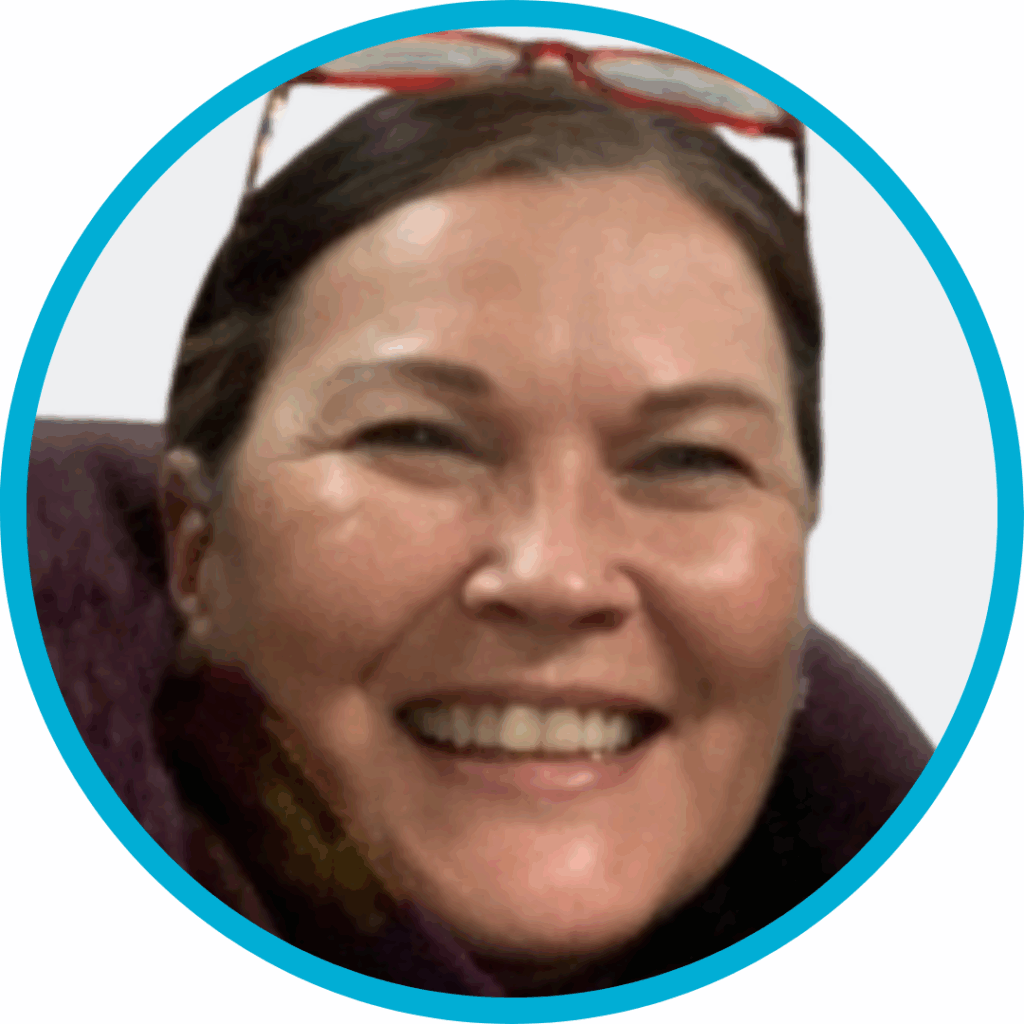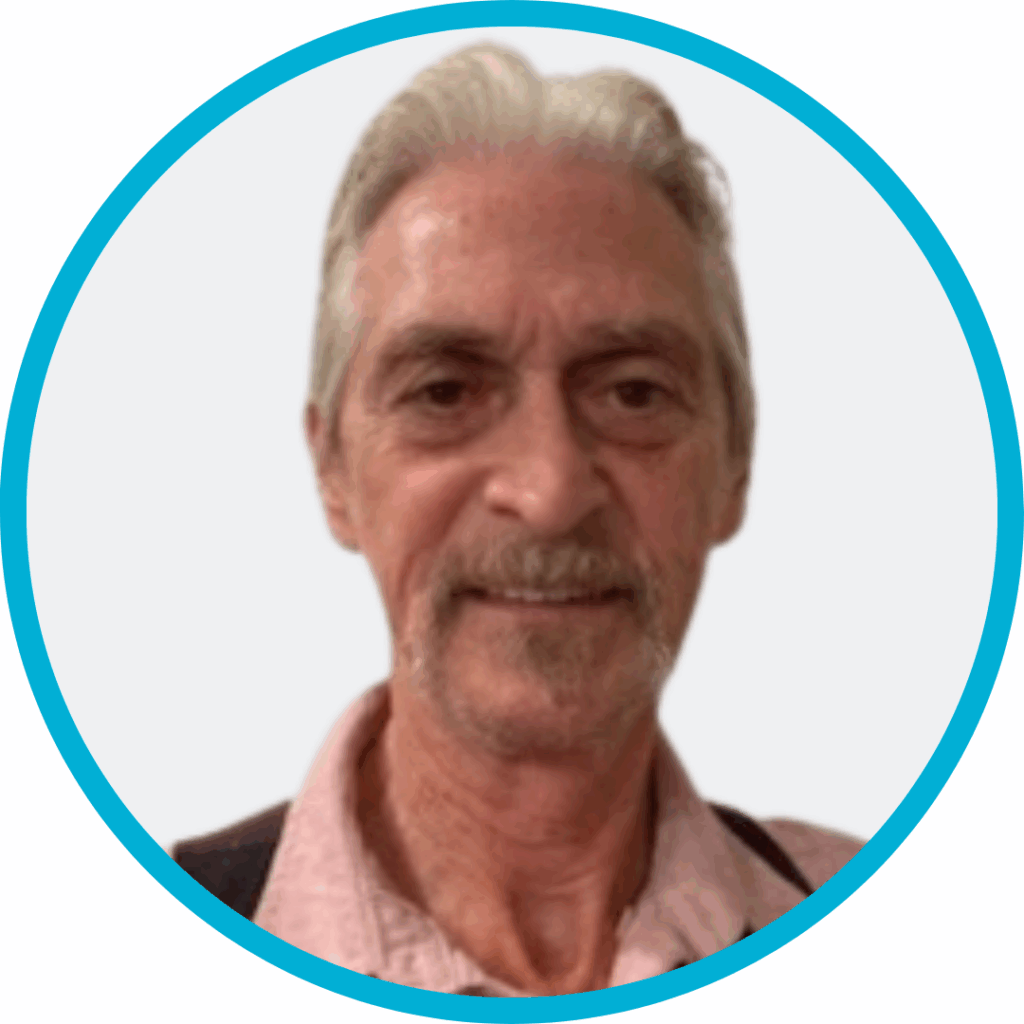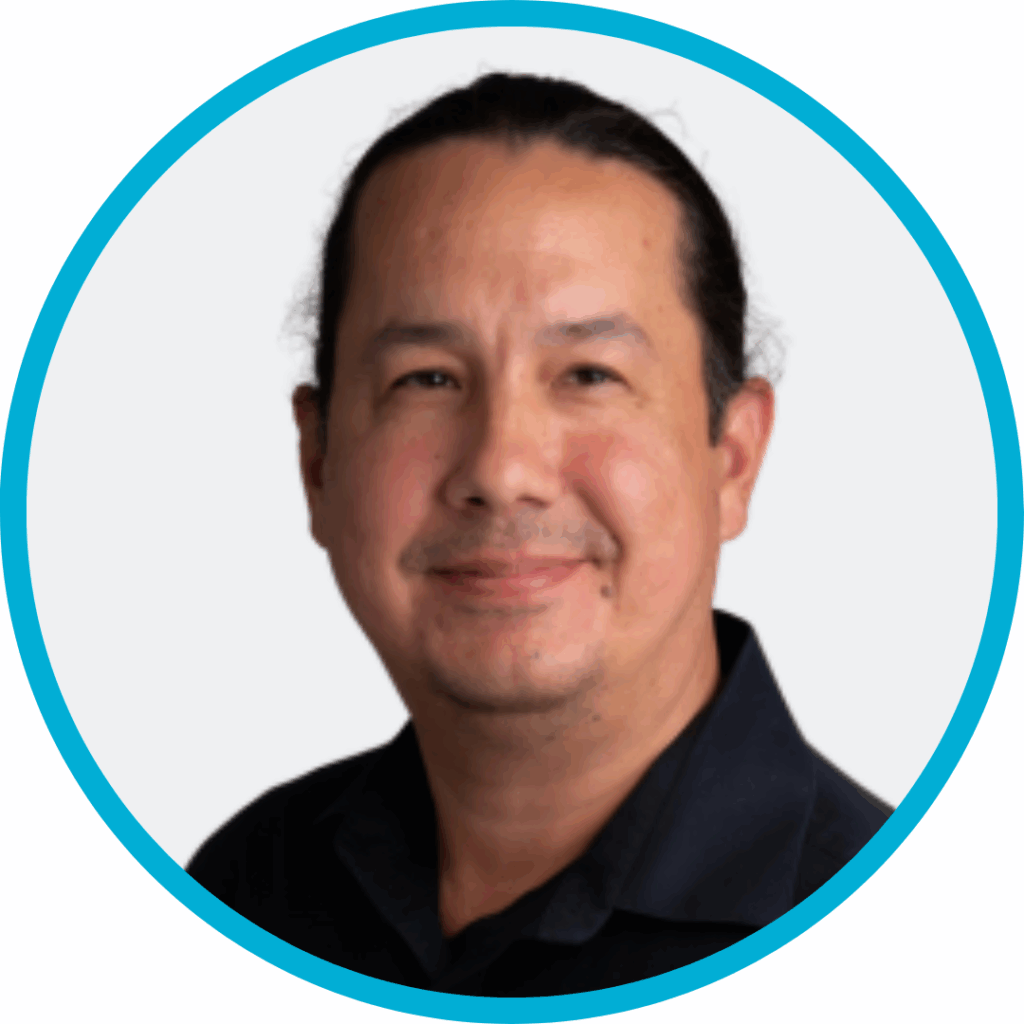National Indigenous Peoples Day (June 21)
June 19, 2025
Centering wholistic, community-based knowledge to model a good way forward for First Nations, Inuit and Métis cancer care
Andre Letendre, Judy Clark and Warren Lewis share their lived experiences, learnings and aspirations as Community Health Advisors to the Canadian Partnership Against Cancer.
For National Indigenous Peoples Day (June 21), we interviewed the three First Nations, Inuit and Métis Community Health Advisors: Andre Letendre (Métis), Judy Clark (Inuit) and Warren Lewis (First Nation). They joined the Canadian Partnership Against Cancer (CPAC) in 2024.
The Community Health Advisors support CPAC’s commitment to reconciliation by sharing their lived experiences, as well as community and regional insights, to guide the planning and implementation of CPAC’s initiatives.
The interview below has been edited for length and clarity.
CPAC: Why did you get involved in the role of Community Health Advisors?
Andre Letendre: Everybody knows about cancer, but nobody wants to talk about it. It’s a devastating disease. I have a passion in helping out in any way I can, especially for Indigenous Peoples. I’m a strong proponent that if the colonial (western) system would unite with our ways of knowledge, with the natural world, that we could come up with a good service.
It is very important to me that the Métis have a voice. Historically, Métis have been the forgotten people. Nationally, we didn’t have a strong voice. For me personally, my identity is founded in my nêhiyawêwin (Cree) ancestry. That’s the start of who I am. And after that I got the French side. But I’ve always identified as Métis. I was proud to. I want to be a part of the movement where the Métis are rising and having a voice.
Judy Clark: I joined CPAC as an Inuit Community Health Advisor when I was working at the Manitoba Inuit Association.
When I was with the Manitoba Inuit Association – it was still somewhat growing at the time; I think maybe five staff in total – there were so many issues that needed to be addressed. Health being one of the top priorities, along with housing, income, food security, etc. We heard some stories in the past few years about care that loved ones either did or didn’t receive. Unfortunately, one person ended up passing away from cancer at a young age from a type of cancer that could have been detected early and treated. So, I thought it was important for Inuit to have a voice in cancer care and health care in general.
Warren Lewis: Like Andre and Judy, I had family and community members who were touched by cancer and people who passed from it. It’s something that affects so many people. First Nations Peoples, like with many other health outcomes, are disproportionately affected by rates of cancer as well. I wanted to be part of the work that helps undo these harms.
What are some of the cancer and health priorities important for you?
Judy Clark: Access to health care is a significant priority. Understanding the social determinants of Inuit health and applying Inuit Qujiminajatuqangit (or IQ Principles) to that work is part of that.

Looking at how we collect, analyze and build strategies through population and clinical data that are driven, managed and owned by the Inuit will be an important focus for me as an advisor.
-Judy Inugjuaq Clark, Inuit Community Health Advisor
Andre Letendre: Everything starts with a relationship. I need to go and develop these relationships with the partners at CPAC. Not to influence what they’re doing, but to get to know them so that I can bring it back to this national perspective and share. One of the partners, for instance, is the Saskatchewan Cancer Agency and their work on multiple myeloma. I’m also learning and building relationships with many other Métis communities. We have a Métis advisor at CPAC, Susie Hooper, who is from British Columbia. I need to understand what they’re doing in B.C., Manitoba, Alberta, Ontario, and the rest of the country.
That’s where I am right now: developing relationships with partners here in Saskatchewan, but also with patients and community members across the country.
Warren Lewis: There are a lot of negative health outcomes within my community. Years ago, my community used to have a lot of alcohol use. It’s interesting to see that it’s switched from alcohol to drug use. I think that mirrors a lot of what’s happening in the rest of the country, as it’s becoming such an issue for many, not only First Nations communities.
Like Judy said, access to health care is also a significant issue. The Indian Act was and still is the most significant factor behind that. So many First Nations People were taken from their traditional territories and put on small tracts of land, many hundreds of kilometres away from what you might call mainstream communities, in very remote and isolated locations. With that, you can imagine how difficult it would be to access preventative care or continuing care.
There are a lot of these disparities that the mainstream population in Canada isn’t aware of. I always try and put these things out there to people, to inform them of the issues in these northern, remote First Nations communities.
Cancer isn’t just one isolated problem, but something that’s deeply intertwined with broader health issues, colonial structures and systemic racism.

Cancer is interrelated across many other diseases, which are not always physical but also mental, emotional, social and spiritual.
-Andre Letendre,
Métis Community Health Advisor
Andre Letendre: When I approach cancer, or any issue really, I think of “ethical space” – a concept developed by my friend Willie J. Ermine – as a guide. Ethical space asks four questions: Where do we come from? How did we get here? Why are we here? And where will we be going? We can’t know where we’re going unless we can answer those three questions. We have to know. How did we get here? For me, I’ll say 1600. That’s when my first French European ancestors came to this land.
Once the colonial way came, they brought this isolating and destructive concept, where we do not even look at our relationship to the whole. So, when we talk about any one of the health issues, you have to look at it wholistically: at housing, food, air, water, family, language, connection with the land. It’s all relationships, across generations. And we’re not doing that. We do not have a good health system in Canada that is grounded in relationships and to the natural law. And natural law is common to every Indigenous culture around the world.
Cancer can be seen as an expression of intergenerational trauma.
Warren Lewis: As a First Nations person, when it comes to intergenerational trauma, we think of the residential schools. People don’t know as much about the Indian day schools and the Indian hospitals that were in every First Nations community as well. And they were very similar to the residential schools.
You can imagine being ripped away from your family and taken to a strange place, on your own, being mistreated, abused, traumatized, with nowhere to turn in these places. It’s just you. And then going through 10 years of that usually. Then you’re essentially out of school, but you can imagine the big hole that would have been left in these children, now adults, from the violence that they experienced. This happened to family after family.
All these things were going on for over 150 years.
I feel like these traumas – enduring and keeping them within your body over generations – could absolutely affect your health. This is the common experience for First Nations and Indigenous Peoples across Canada.
Judy Clark: The historical racism and colonialism in the healthcare system is a persistent and ongoing issue. I’m a retired nurse with 32 years of experience (I retired in 2019). So, I’ve seen a lot of racism and forms of colonial structures. They’re very hierarchical. Coming from doctors, it was really astounding. When I could, I would interrupt instances where I witnessed racist situations.
At the Manitoba Inuit Association, we had the College of Physicians and Surgeons of Manitoba come to our office, and they gave a public apology to the Inuit community. Now, whether that will do anything, I don’t know. Definitely not in the short term because I’m still hearing all kinds of stories: poor treatment, being turned away, and just rude and unprofessional behaviour from healthcare professionals.
You really have to advocate for yourself. If you don’t advocate for yourself, you’re in a bind. If you don’t have someone to advocate for you, you’re basically ignored.
What have been some of the highlights of your work with CPAC so far?
Andre Letendre: The collaboration with the CPAC team has been a highlight. There’s a genuine commitment to listening and integrating our advice. We’re seeing a shift towards more inclusive practices, and that willingness to learn and adapt makes the work meaningful. It feels like we’re truly building something impactful together.
And just how vast this role is. To some it may even feel daunting, but not to me. I thrive on challenges.
Judy Clark: I got to meet some really well-respected individuals, including my co-advisors. They just bring a wealth of knowledge that I really try to soak up as much as I can. And there are also a few individuals that I think of as Elders. I really respect their points of view, which can be different from mine.
Other highlights include being asked to sit on committees, meetings and making new connections. I’m currently taking a two-year course at McMaster University on population health and clinical health. I’m also involved with the Canadian Cancer Research Alliance and am co-chairing the committee planning the Canadian Cancer Research Conference happening in November 2025. I’ve never done that before. So, I’m learning a lot. It’s a pretty cool experience meeting so many highly educated, committed people and getting their perspectives on things.
Warren Lewis: There are a lot of good people within CPAC trying to do good work. I’m really happy to see someone like Talia Pfefferle [Director, First Nations, Inuit and Métis Cancer Strategy] leading this work. I’m also happy to see that CPAC is actually doing the work of Indigenizing the organization, trying to incorporate ways of doing and knowing from Indigenous Peoples. That includes the advisors, but also Talia and her team.

CPAC is modelling a really good way forward for organizations that want to change in a meaningful way. They take what we as the advisors say, what the Indigenous leadership and communities say, and act on those things.
-Warren Lewis, First Nations Community Health Advisor
It’s an authentic way to bring these Indigenous ways and knowledge into the organization. It’s so refreshing to see this because unfortunately with many other organizations, it’s more talk than action.
What does National Indigenous Peoples Day mean for you?
Judy Clark: I believe it’s a time to reflect on the history, the stories, the wonderful people. First Nations, Inuit, Métis – we have very distinct cultures. Some similarities, but very distinct in our own right, our own languages. I was born in Churchill, and my mom’s side of the family is from Whale Cove, Nunavut. So, it’s a day to reflect and be proud of my heritage.
We also have Nunavut Day on July 9, which is another special day for Inuit.
Andre Letendre: First of all, it’s an honour to be an Indigenous person in Canada. I didn’t use to believe that years ago. There has been a monumental shift in the national consciousness since the Truth and Reconciliation Commission report came out in 2015.
I look back and see that’s when Canada as a country branched off a little bit. We were going one way, and then the Truth and Reconciliation Commission report came out, with its 94 Calls to Action, and that marked a turning point. That’s the opportunity we have – to continue following that branch because that branch will lead us to a more wholistic, effective and ethical health service in Canada.
Warren Lewis: Of course, it’s a very important day. It’s also part of National Indigenous History Month (June). But I always wish there was more. Many people still base their views and assumptions about Indigenous Peoples from stereotypes and prejudices that have long been festering in Canada. So, I really wish that education was more in mainstream schools, from kindergarten all the way up to colleges and universities.
I think that the awareness should go with action, and it should go beyond a month or a day. It needs to be sustained; it needs to be consistent; and it really needs to be in the public eye a lot more.
Andre Letendre: You have to make that commitment every day. June 21 is when we celebrate nationally. But reconciliation is every day, every moment of our lives. That vision, that knowledge… it’s more than just one day.
